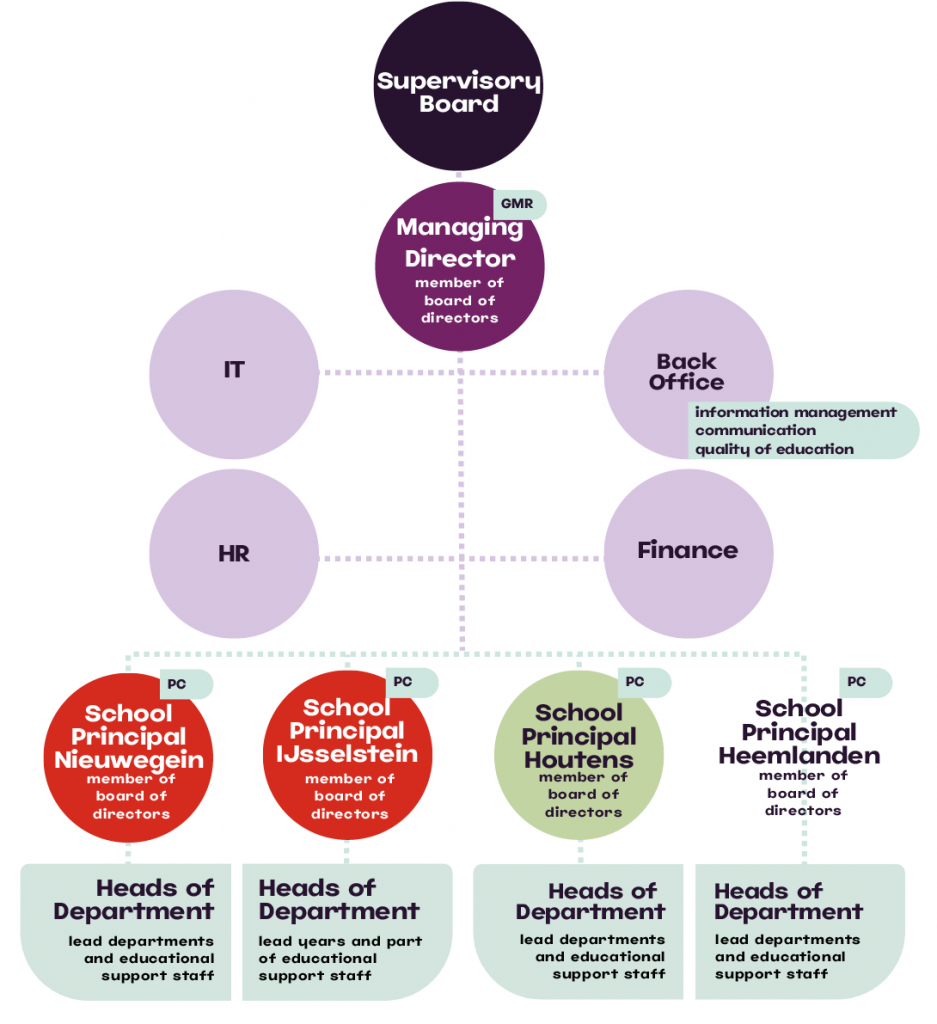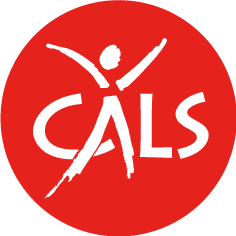Quickly go to
About us
The Cals College Supervisory Board is responsible for two schools: Cals College Nieuwegein and Cals College IJsselstein. The schools are about five kilometres apart and on the periphery of the historic city of Utrecht. Amsterdam is about 40 kilometres away.
Cals College is founded on general Christian values, but open to all faiths. Each school has its own principal who is responsible for the daily management (view organogram).
Pupils at Cals College had a choice of four or more secondary schools in the catchment area, all of which strive to be responsive to the wishes of parents and pupils. At Cals the focus has always been on cultivating an open atmosphere, with good relations between pupils and staff. The cultural and bilingual strengths of the school also have a significant attraction for potential pupils.
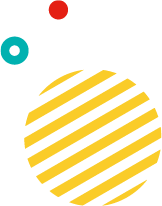
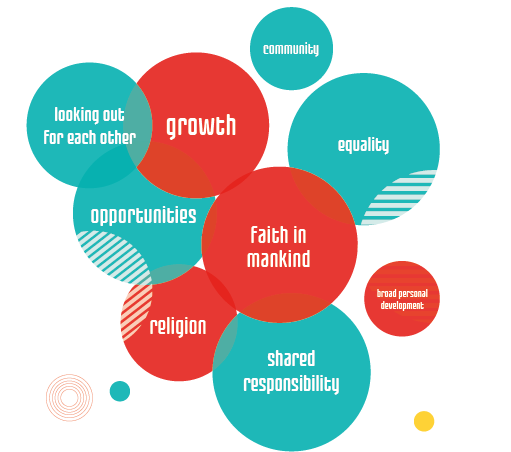
Our core values
We design and implement education based on the following core values:
- We believe in each other, in each other’s capabilities, and in each other’s intentions. We have high expectations of each other, and we think and act in terms of opportunities and possibilities. In this way we offer our pupils the opportunity to develop cognitively, creatively, and in their understanding of this world.
- We feel a bond with each other. Acknowledging each other and being acknowledged are therefore important to us. We look out for each other. We feel responsible for ourselves and for each other.
- We are open to the ways in which other people can be different. This requires tolerance. We do so in dialogue with each other, on the basis of equality.
- We seek an atmosphere of openness. We respond to our environment with an open mind, and are open to new ideas and insights. We view the world with wonder, and share this wonder with our pupils.
- This is how we create a safe environment for living and for learning.
- This is how we give shape to our open Catholic identity.
Quality and goals
Cals College is continuously working to improve the quality of its education. We follow the latest developments and make sure that our education continues to connect smoothly to further education and the job market. We devote lots of attention to the compulsory school subjects, but we find that personal development and preparing for the future are indispensable for every pupil.
Besides culture and sports, our education policy also sees internationalisation as an important goal. Accordingly, we organise international internships, exchanges and trips. This gives pupils the opportunity to put their foreign language skills and knowledge into practice. Of course you are more than welcome to visit Cals College to gain a first-hand impression, and to discover how the Dutch education system works.
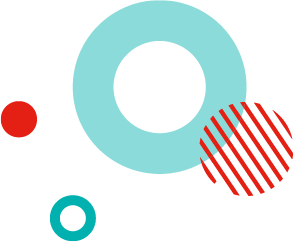
Pupil guidance
Additional support for pupils and parents
We believe that pupils, parents and the school should always communicate with each other. All pupils have their own (class) tutor. The class tutor has a special responsibility for the overall well-being of the pupils at school and is the first point of contact for parents. Parents can monitor their children’s marks and attendance online. For pupils with special needs, we have a care team which includes remedial teachers, confidential advisers and teaching assistants.
Specialised programmes
Cals College Nieuwegein offers education to pupils with at least a HAVO recommendation. There are currently 2200 pupils.
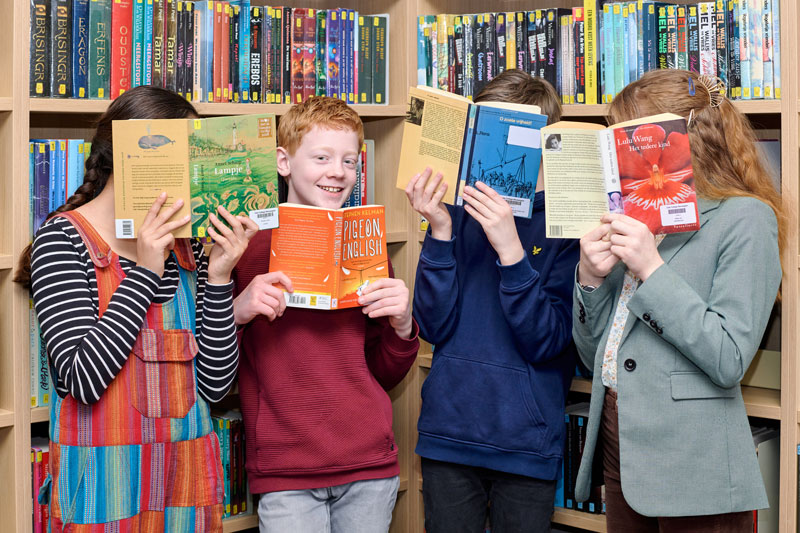
Bilingual education
The school has a large and well-developed bilingual (Dutch and English) HAVO and V WO department. In the first three years of this optional programme, more than half of the subjects are taught in English. The aim is to help students to develop an excellent command of the English language and an international perspective. The three pillars of bilingual education are language proficiency, global citizenship and personal growth. A number of subjects are taught by native English speakers. Upper school pupils work toward an IB (International Baccalaureate) English certificate on top of their secondary school subjects.
The bilingual department also organises a number of excursions and drama workshops with an international perspective. Second-year pupils go on a study tour to England, and in the third year there are exchanges between Cals College and schools across Europe. In the upper school there are international work placements, which take our pupils all over the world.
Technasium
The technasium programme concentrates on the skills required by pupils pursuing a technical direction, for instance on how to do research, on creative thinking, and on making a design. The goal of the programme is to help pupils channel their creativity toward sustainable solutions for real-life problems.
The first year of the HAVO/atheneum and the atheneum gives all pupils the opportunity to become familiar with the technasium programme, especially through the subject of ‘Research and Design’. In subsequent years they can choose R&D as a subject for their final exam.
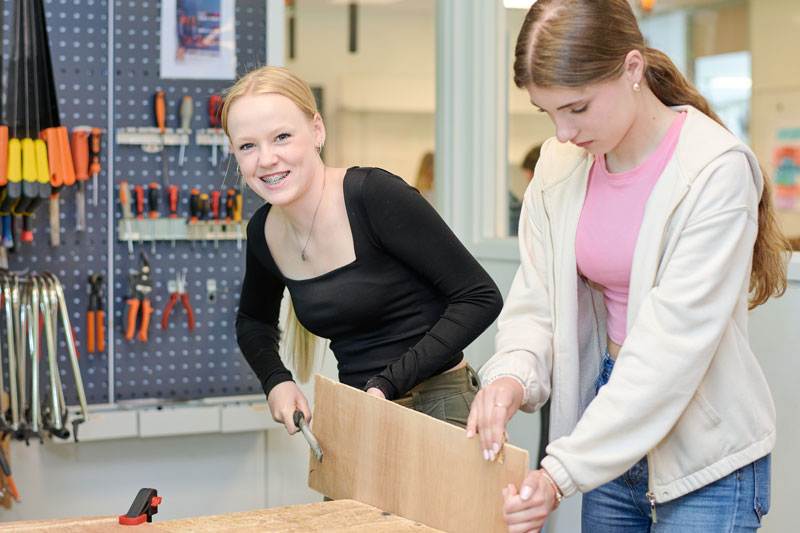
Culture for all pupils
Cals Nieuwegein is accredited as a ‘cultuurprofielschool’ (culture school) because the arts are strongly represented throughout the school programme. Culture contributes importantly to the development of pupils and connects to our core values of ‘openness, safety, bonding and trust’. The culture programme is apparent in all school years, for instance through subjects like drama, music and visual arts, and in talent tracks such as audio-visual, atelier and dance. There is also a busy programme of school performances including two musicals, the final year (diploma) presentations and a range of workshops.
Internationalisation
We have several international exchange programmes, for instance with schools in Estonia, China and Spain. The school also organises cultural excursions to various other countries. There are day trips to France, Belgium and Germany.
More than just lessons
In addition to the curriculum, pupils have a wide choice of activities including courses and electives. This way our pupils can develop into critical, well-balanced individuals with their own personal views of the world around them and their own lives.
HAVO and VWO pupils with an interest in and talent for scientific subjects can participate in special programmes offered by Utrecht University and the Utrecht University of Applied Sciences.
For pupils not enrolled in the bilingual programme but who do want to devote extra effort to learning English, the HAVO and V WO programmes offer the option of preparing for the Cambridge Advanced English certificates, which are recognised worldwide. This option is also offered for German and French, through the Goethe Institute and Delf Scolaire. Our teachers prepare the pupils for these certificates.
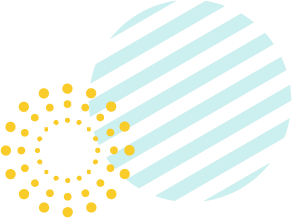
Starting from the first year we also offer lessons in Chinese and from the second year the subject of philosophy for pupils seeking an additional intellectual challenge. Chinese is also offered as a subject for the final examination.
Cals Business College (HAVO) and Jong Ondernemen (‘Young entrepreneurs’, VWO) cater to pupils with an interest in commerce. Pupils actually set up their own business by choosing a product, finding financiers and conducting procurement and sales.
The Media Academy is offered as an option to HAVO pupils with an interest in journalism, graphic design, vlogging and blogging.
Dutch Education System
There are approximately 700 secondary schools in the Netherlands, both state and privately run. Secondary education encompasses schools providing pre-university education (VWO (atheneum and gymnasium) 6 years, age 12-18), senior general secondary education (HAVO; 5 years; age 12-17), pre-vocational secondary education (VMBO; 4 years, age 12-16) and Practical Training (PRO; age 12-18). All four types of secondary education are for children aged twelve and up and all begin with a period of general secondary education.
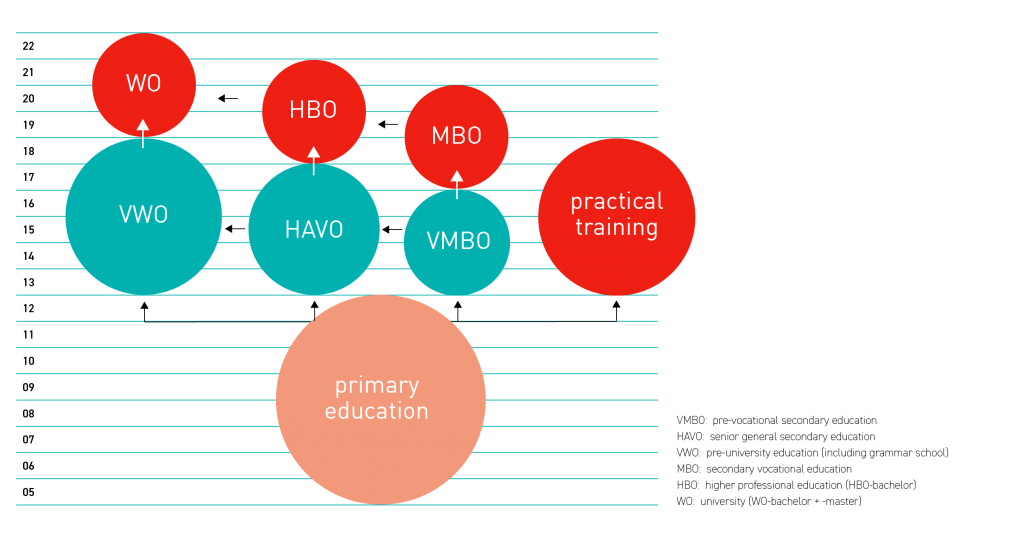
Pupils who are unable to obtain a VMBO qualification, even with long-term extra help, can receive practical training to prepare them for a position on the labour market.
In vocational education, courses of study have been adjusted to better suit the labour market. In light of the ever-growing demand for MBO (upper secondary vocational education) and HBO (higher professional education) graduates, an important goal for the coming years is to encourage students to move on to higher secondary school levels and to prevent students from dropping out.
The supervision of the quality of Dutch education is partly entrusted to the government’s national Education Inspection Commission. Dutch schools are financed by the government. They receive a fixed amount of funding each year to be spent on facilities, salaries and further education of staff as they see fit.
Upper forms specialisations
HAVO and VWO:
Pupils specialise after the third year of their secondary education. They choose one of four pro-files that will prepare them for higher education:
- Science and health
- Science and technology
- Economics and society
- Culture and society
Each profile consists of:
- Mandatory subjects (regardless of the profile), such as Dutch, Mathematics and English.
- Specialist subjects, such as Physics for the science and technology profile.
- Electives, which can be chosen from another profile.
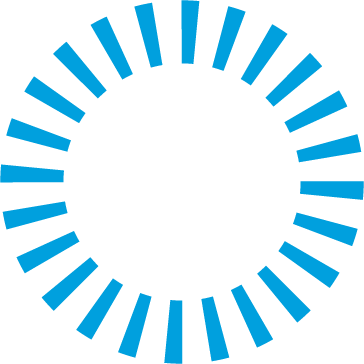
VMBO:
The VMBO programme consists of a theoretical and a professional oriented stream. The theoretical pathway is meant for pupils who may wish to join the HAVO programme, or who want to defer their choice of profession since specialisation only takes place in the third year. There are four specialisations:
- Economics
- Healthcare
- Engineering
- Agriculture
The professional pathway is a practice-oriented education. After two years, pupils choose one of the following four professional specialisations:
- Economy and Enterprise
- Care and Well-being
- Construction, Domestic living and Interior design
- Producing, Installing and Energy
Organogram
